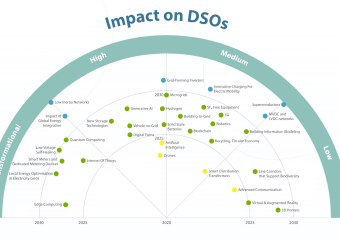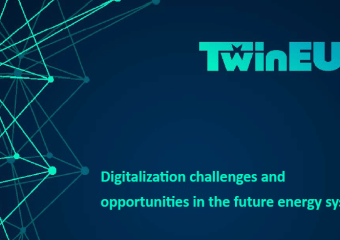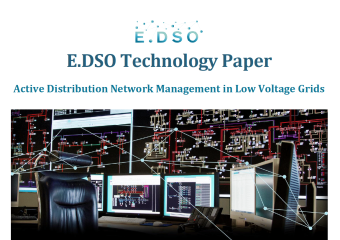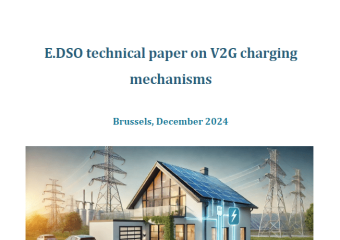In order to be a meaningful and practically applicable legislation, the EPBD must recognise the importance of grid-delivered decarbonised energy
We, along with Eurelectric, WindEurope, the European Heat Pump Association (EHPA), smartEn and Avere, are representing a wide coalition of industry groups, strongly emphasise the need for acknowledging carbon-free energy delivered through the electricity grid as a fully compliant source of power for zero-emission buildings (ZEB) in the revision of the Energy Performance of Buildings Directive (EPBD).
We fully support the introduction of a zero-emission building definition, however, as it stands now, the definition of a ZEB included in the proposal of the Commission and the European Parliament falls short of recognising the pivotal role of electricity grids in the decarbonisation of our continent’s building stock. Specifically, the flow of energy from the grid is limited to extremely restricted use cases and exclusively through power purchase agreements (PPAs) which would represent a complex and inaccessible procedure for private residential consumers.
The future of Europe’s energy transition depends on ensuring that all zero-emission buildings can rely on carbon-free and reliable electricity from the grid in achieving accelerated levels of decarbonisation and electrification, therefore guaranteeing that the EU’s ambitious long-term climate goals can be met.
We call on policymakers involved in the EPBD trilogue negotiations to support the Council’s version of the text, which puts carbon-free energy for powering zero-emission buildings on an equal footing and to further ensure that the vital role of the electricity grid is properly reflected in this file.
Excluding the use of decarbonised electricity supplied via the grids will be counterproductive for the energy transition in several major areas
- Decarbonisation and electrification
Achieving the EU’s climate goals necessitates swift decarbonisation and a higher rate of electrification for which grid-delivered carbon-free energy is critical.
A ZEB definition that fails to make use of the enormous potential of the grid for supplying a large share of readily available decarbonised electricity to Europe’s building stock will drastically slow down the pace of electrification, consequently hampering the speed of the energy transition.
- Energy security, resilience and reliability
Grid-delivered decarbonised electricity enhances energy security by reducing dependence on singular on-site sources. Centralised energy production further increases the resilience of buildings, ensuring stable energy supply during disruptions.
While the development of decentralised clean energy production is an ongoing phenomenon that needs to be promoted, it must always coexist with a decarbonised centralised system which plays a key role in the security and quality of our electricity supply. A consistent flow of carbon-free energy from the electricity grid, supports the functioning of essential services during crises. Additionally, a ZEB definition that recognises solutions such as demand-side flexibility will further ensure the overall reliability, efficiency, and optimisation of our centralised energy system.
Importantly, uninterrupted carbon-free energy access is critical for the faster penetration of technologies like heat pumps and electric vehicles that are interconnected with buildings. These technologies are key catalysers of heating and transport electrification, helping to slash emissions, and propelling Europe towards a climate-neutral future.
- Affordable energy for consumers
Energy from carbon-free sources delivered through the electricity grid lowers the cost of energy for consumers by eliminating the need for upfront investments, making decarbonised solutions affordable through a centralised system.
It decreases storage needs (e.g., batteries at home) and generation costs. In many cases, the grid is the most cost-efficient way of supplying decarbonised electricity to buildings, due to access to utility-scale renewable resources as well as economies of scale, therefore we see it as paramount that the ZEB definition does not exclude it.
- Incentivising faster grid decarbonisation
Recognising grid-delivered carbon-free energy as equally compliant with the zero-emission building definition in the EPBD incentivises power generators to continue on their path to accelerate decarbonisation efforts. This will, in turn, further facilitate the penetration of renewables at a faster pace which aligns with the broader EU objective of achieving a carbon-neutral energy system.
Strong focus is needed in the trilogue negotiations
A zero-emission building definition within the EPBD that fully includes the role of carbon-free energy delivered through the electricity grid for powering new buildings is imperative. Failure to acknowledge this role jeopardises Europe’s energy transition by impeding rapid decarbonisation and electrification of buildings which are essential for reaching the EU’s climate objectives.
E.DSO, Eurelectric, WindEurope, the European Heat Pump Association (EHPA), smartEn and Avere, strongly call for policymakers to support the Council’s position on the zero-emission building definition in the EPBD trilogue negotiations and ensure that the Directive fully captures the benefits of the electricity networks in reliably providing decarbonised energy for the smart and sustainable buildings of the future.






